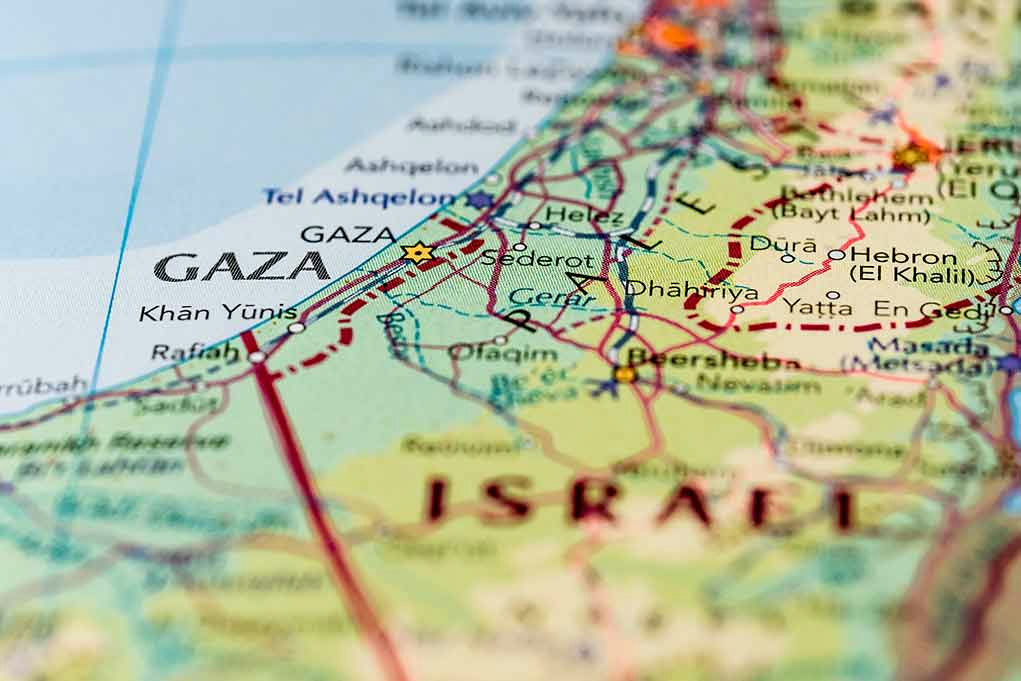When a government’s “humanitarian solution” looks and sounds like a concentration camp, you have to wonder how far the world has fallen—and who’s next on the list for forced relocation in the name of “progress.”
A “Humanitarian City” That Looks a Lot Like a Prison
Israel’s Defense Minister, Israel Katz, just made headlines worldwide with a proposal that’s being branded by critics as nothing short of a humanitarian catastrophe masquerading as policy. On July 7, Katz publicly rolled out a plan for the “forcible relocation” of 600,000 Palestinians into a fenced “humanitarian city” built atop the rubble of Rafah. If that doesn’t make your skin crawl, the endgame is to corral every remaining Palestinian in Gaza—over two million people—into this single, closed-off zone. Entry is contingent on security screening. Once inside, residents cannot leave. The so-called city, where freedom is traded for forced containment, would be managed by mysterious “international bodies.” You don’t need a PhD in history to see why people are drawing comparisons to Europe’s darkest chapters.
While Israeli officials frame this as a “humanitarian solution,” the rest of the world is having none of it. Editorials in major media, human rights groups, and even members of the EU Parliament are openly condemning the plan as forced transfer and ethnic cleansing. Haaretz, no friend to the conservative right, went so far as to call it a “criminal transfer” dressed up as relief. To anyone with an ounce of common sense, this plan doesn’t sound like humanitarian aid—it sounds like a blueprint for erasing a people under the world’s nose.
Forced Displacement: A Familiar Playbook with a New PR Spin
The Gaza Strip has been under some form of Israeli blockade since 2007, but this newest move represents an escalation that should terrify anyone who values civil liberties or the very concept of national sovereignty. Since the breakdown of a ceasefire in March 2025, Israeli bombardment has turned entire neighborhoods into dust, with Rafah—the last supposed “safe zone”—flattened and abandoned. In the chaos, hundreds of thousands have been driven from their homes, funneled into ever-shrinking corners, and now face the grim prospect of being penned in behind newly constructed barriers, all under the pretense of safety.
Israel is the evil pic.twitter.com/9DBlbXcnHo
— Muhammad in Gaza🇵🇸⚡️ (@7MohammedKhaled) July 11, 2025
This isn’t just a logistical nightmare; it’s a humanitarian one. With only four aid distribution centers left operational in southern Gaza, and those regularly targeted by violence, the so-called “tent city” offers little more than organized misery. Famine, disease, and ongoing violence are the reality. International organizations have warned of genocide and famine, yet Israeli officials continue to insist they’re providing a “solution”—even as the world’s cameras roll and the death toll mounts. Let’s be clear: you can’t bomb a city into the Stone Age and then claim you’re saving the survivors by locking them up for their own good.
International Response: Words, Warnings, and Deafening Hypocrisy
Predictably, the international community is in uproar—at least on paper. The International Criminal Court has issued arrest warrants for Israeli leadership, including Prime Minister Netanyahu. The European Union is wringing its hands, some MEPs are calling for sanctions, and human rights organizations are sounding alarms that are quickly being drowned out by the next crisis. Meanwhile, the proposed camp’s management remains a mystery—no one is stepping forward to publicly claim responsibility for running it, and no one can say who will guarantee the basic rights of those confined inside.
Gaza before and after. pic.twitter.com/INN2RlIuM0
— Emelia (@vikingwarior20) July 5, 2025
Let’s not kid ourselves: the so-called “Gaza Humanitarian Foundation,” reportedly an Israeli-backed and US-run entity, is being floated as a possible overseer. But given the abysmal track record of international “solutions” in conflict zones, this should give everyone pause. If this is the new standard for humanitarian intervention, every freedom-loving American should be worried about what’s coming next, because the playbook of forced relocation, mass surveillance, and collective punishment always finds new targets. The world’s indifference today is tomorrow’s precedent.

